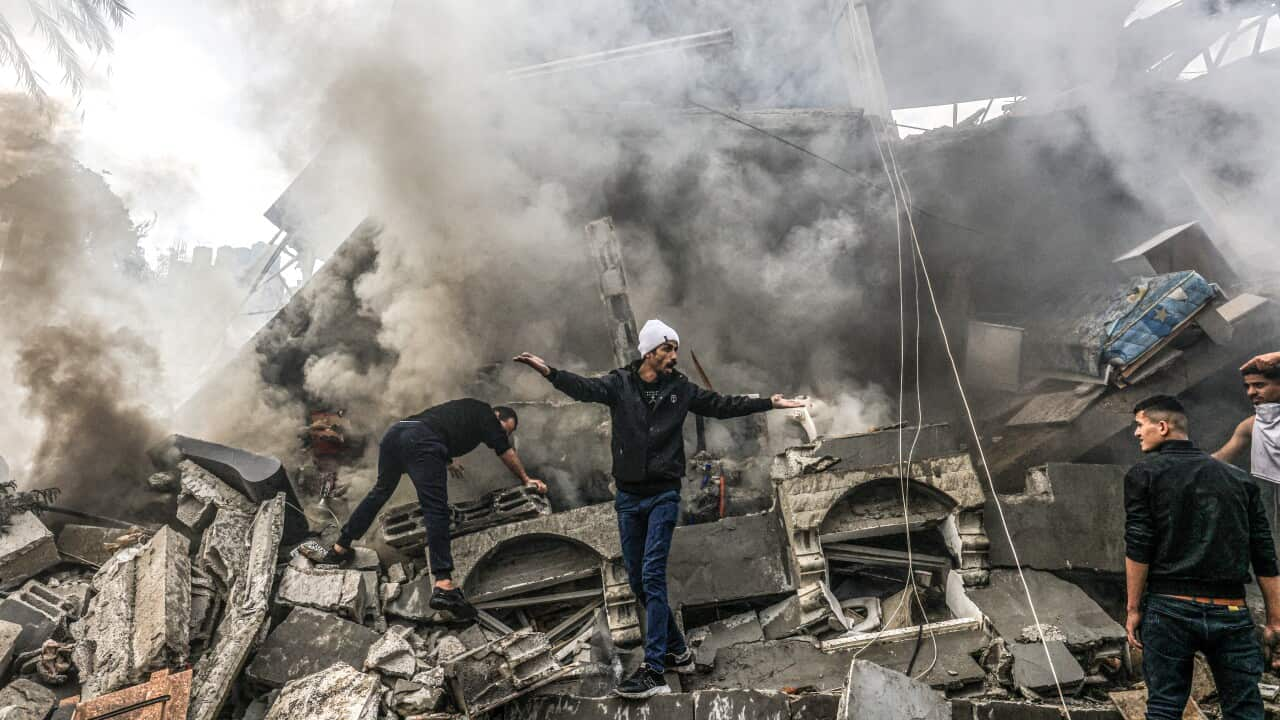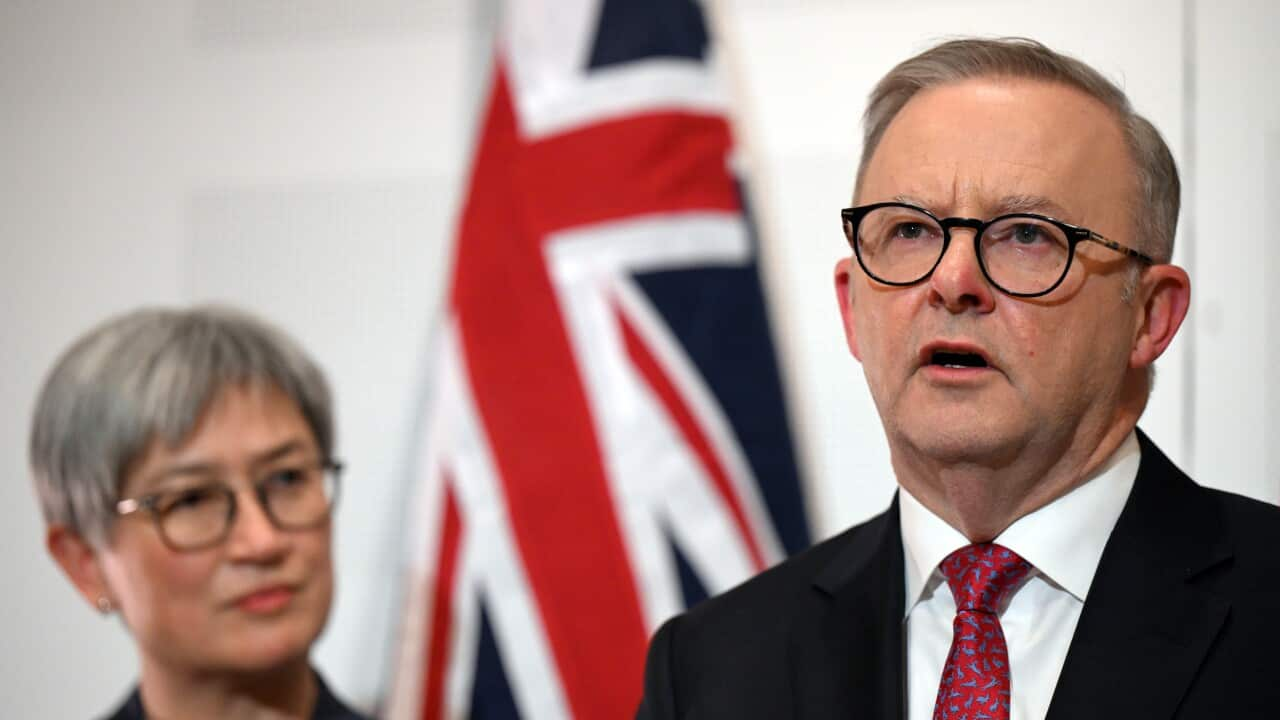Key Points
- The vigil saw nearly 200 medical professionals and civilians gathered at the Sydney Eye Hospital, calling for a permanent ceasefire.
- Similar events have been held in several cities across five continents.
- The World Health Organization said bombardment of the Gaza Strip had been catastrophic for the region's healthcare capabilities.
Several healthcare workers on Friday expressed growing concern about the rising Palestinian death toll in the Gaza Strip where health officials said the number killed since the start of the Hamas-Israel war on 7 October had topped 18,000.
A pro-Palestinian vigil saw nearly 200 medical professionals and civilians gathered at the Sydney Eye Hospital, calling for a permanent ceasefire.
"Along the route, we were chanting the names of every healthcare worker that has been killed in Gaza since 7 October and after each name, we said 'not a target," Dr Amna Ahmed Saadi, a junior doctor in North Sydney, told SBS News.
Following the first London vigil on 10 November, similar events have been held across several cities across five continents, Saadi said, explaining why the Sydney vigil was necessary.
"I am a doctor. I care about human lives, and I swore to help everybody and not to do any harm. And I see just doctors like me in Gaza, trying to help those around them, and they can't. The system completely collapsed because of the Israeli bombing."
In comments this week, the World Health Organization said the impact of Israel's bombardment of the Gaza Strip had been catastrophic for the region's healthcare capabilities while creating conditions ideal for the spread of deadly diseases.
A motion being reviewed by the WHO sought the passage for medical personnel and their supplies and tasked the organization with securing funding to rebuild hospitals.

The Sydney vigil was one of many being held across the world. Credit: Supplied by Amna Saadi
“A ceasefire is the only way to truly protect and promote the health of the people of Gaza. Gaza's health system is on its knees and collapsing. Only 14 hospitals out of the original 36 are even partially functional.”
The war was triggered by an unprecedented attack on Israel launched by Hamas militants on 7 October from the Gaza Strip, killing about 1,200 people, mostly civilians, and taking around 240 hostages, according to Israeli officials.
Aiming to eliminate Hamas, Israel launched a retaliatory military offensive in Gaza that has killed more than 18,700 people, according to the Hamas-run territory's health ministry.
The more than two-month-old war is now raging across the entire Palestinian enclave, causing a humanitarian catastrophe.
A lack of food, clean water, and shelter has worn down hundreds of thousands of traumatised people, and, with a health system on its knees, it's inevitable epidemics will rip through the enclave, 10 doctors and aid workers said.
"The perfect storm for disease has begun. Now it's about, 'How bad will it get?'" James Elder, chief spokesperson for the UN children's fund (UNICEF), said in an interview on Tuesday.
From 29 November to 10 December, cases of diarrhoea in children under five jumped 66 per cent to 59,895 cases, and climbed 55 per cent for the rest of the population in the same period, according to data from the WHO.
The UN agency said the numbers were inevitably incomplete due to the meltdown of all systems and services in Gaza because of the war.
The war between Hamas and Israel is the latest escalation in a long-standing conflict.
Hamas is a Palestinian political and military group, which has governed the Gaza Strip since the most recent elections in 2006.
Hamas’s stated aim is to establish a Palestinian state and stop the Israeli occupation of Gaza and the West Bank, illegal under international law.
Hamas in its entirety is listed as a terrorist organisation by the European Union and seven other countries, including Australia. But the UN Assembly rejected classifying Hamas as a terrorist group in a 2018 vote.
In 2021 the International Criminal Court opened an investigation into alleged Israeli war crimes in the Palestinian territories dating back to 2014, including the recent attacks of both Israel and Hamas.
- With inputs from Reuters



